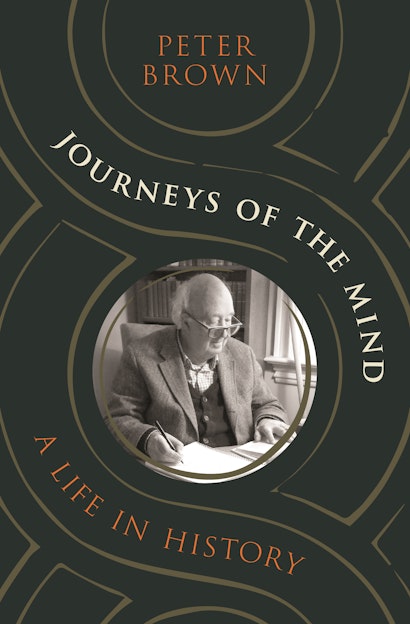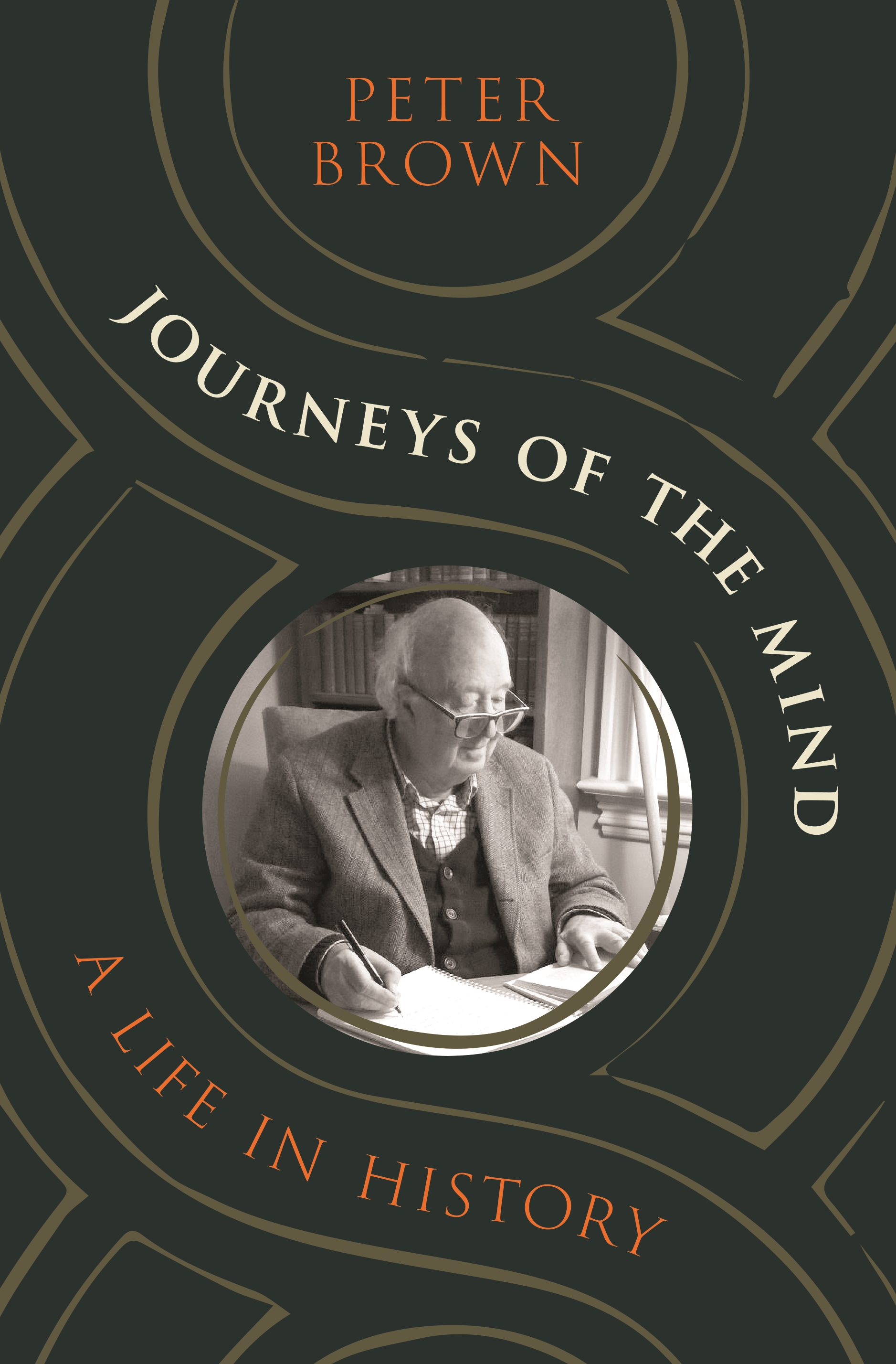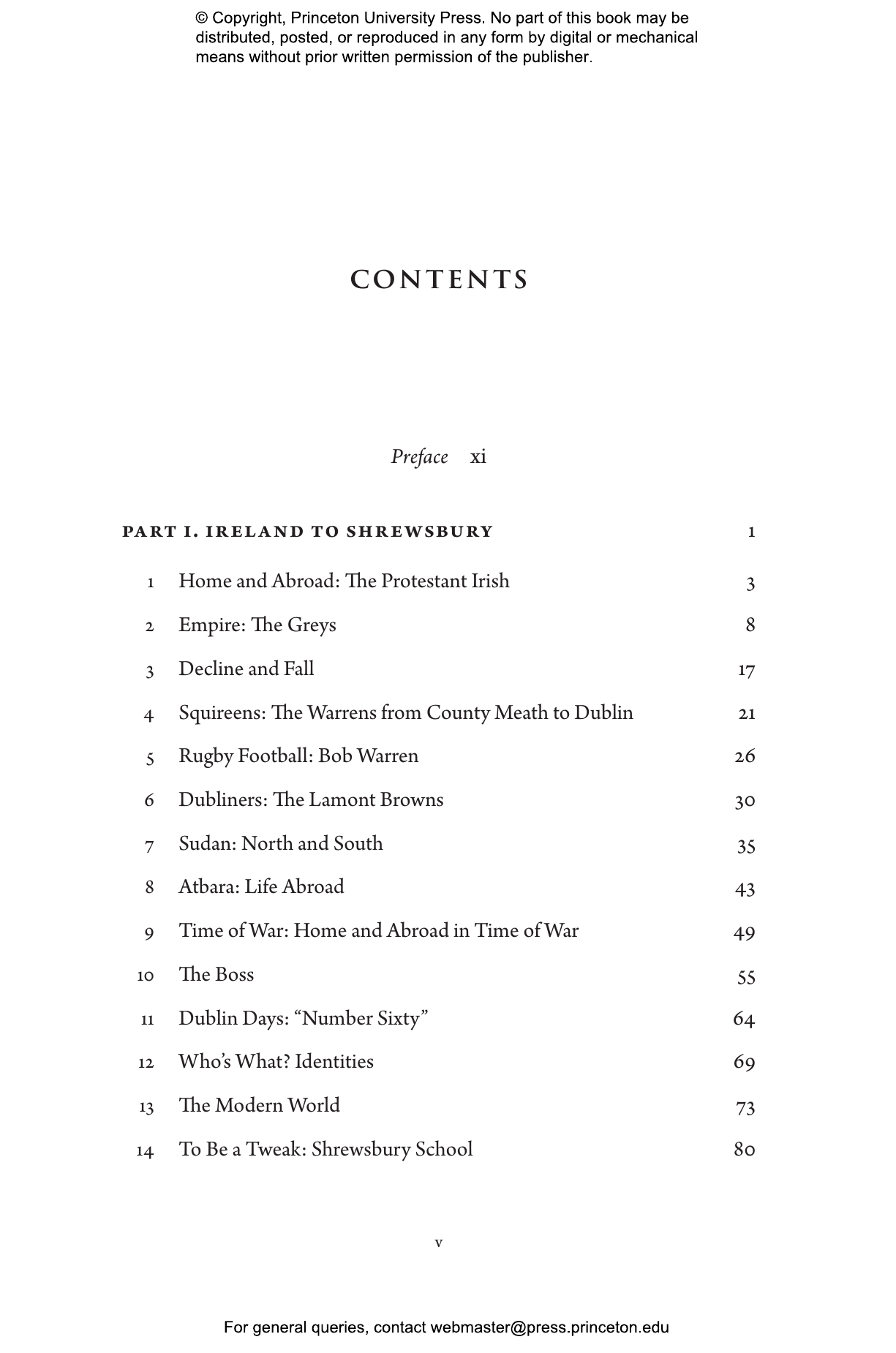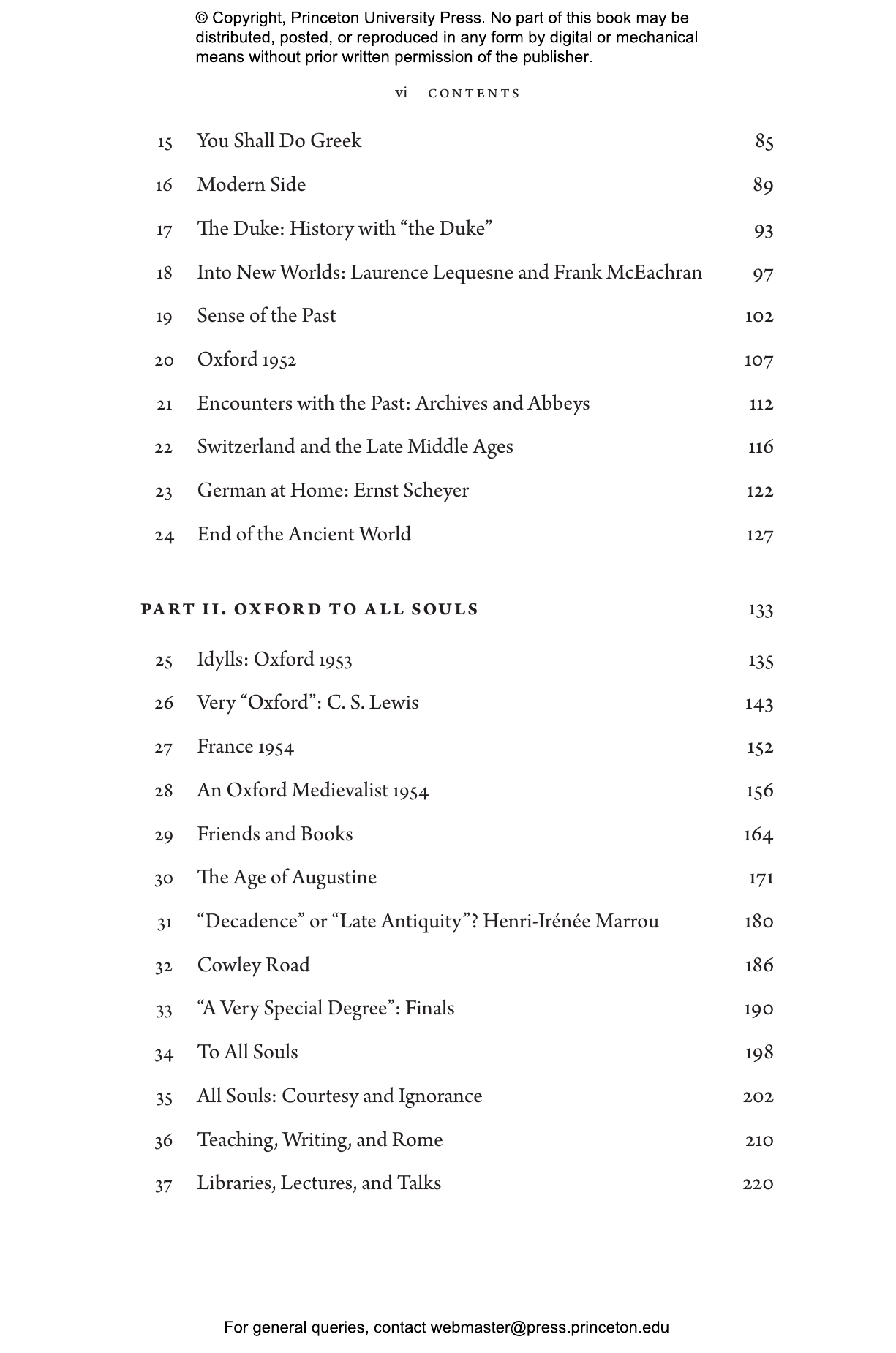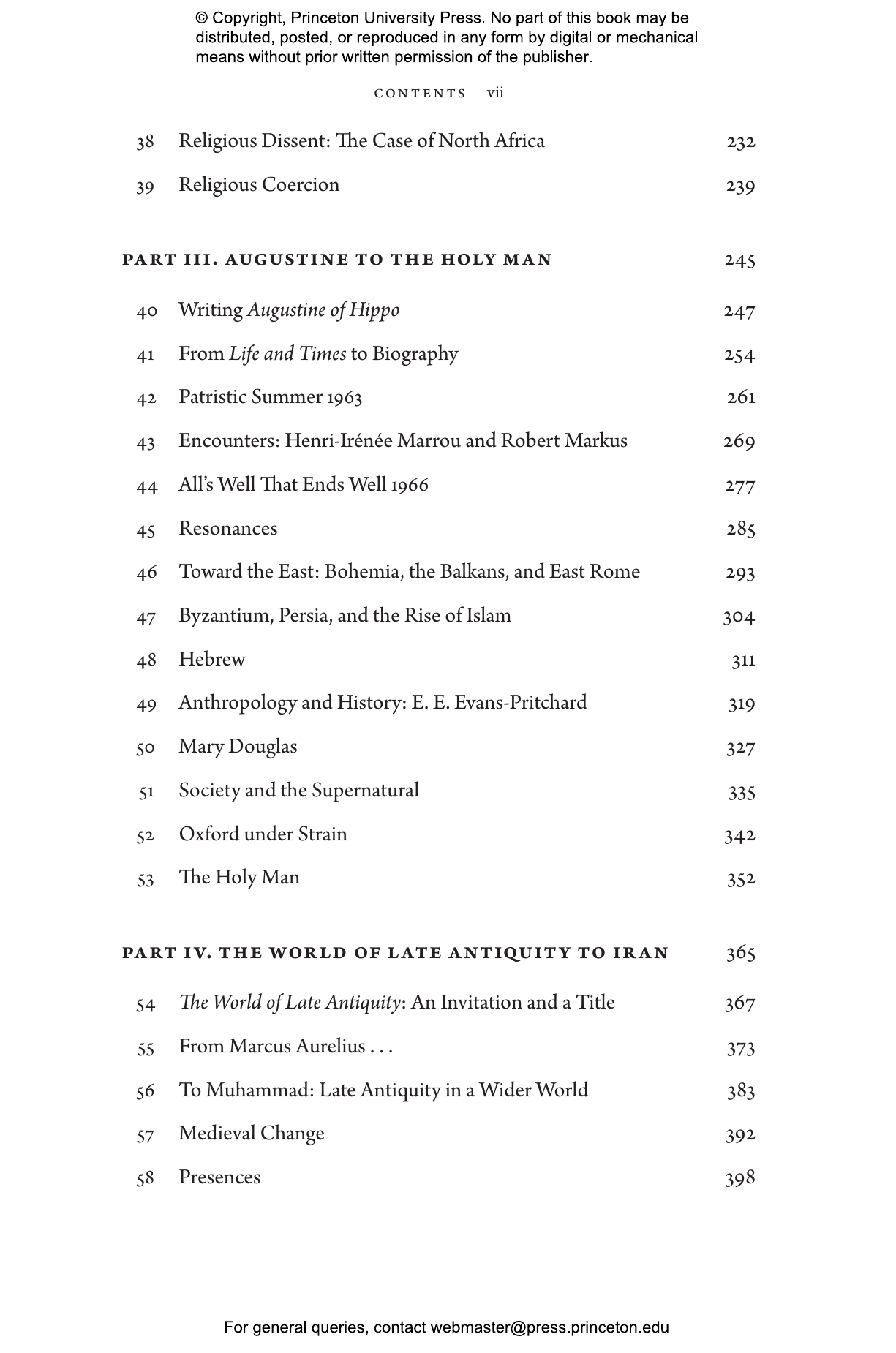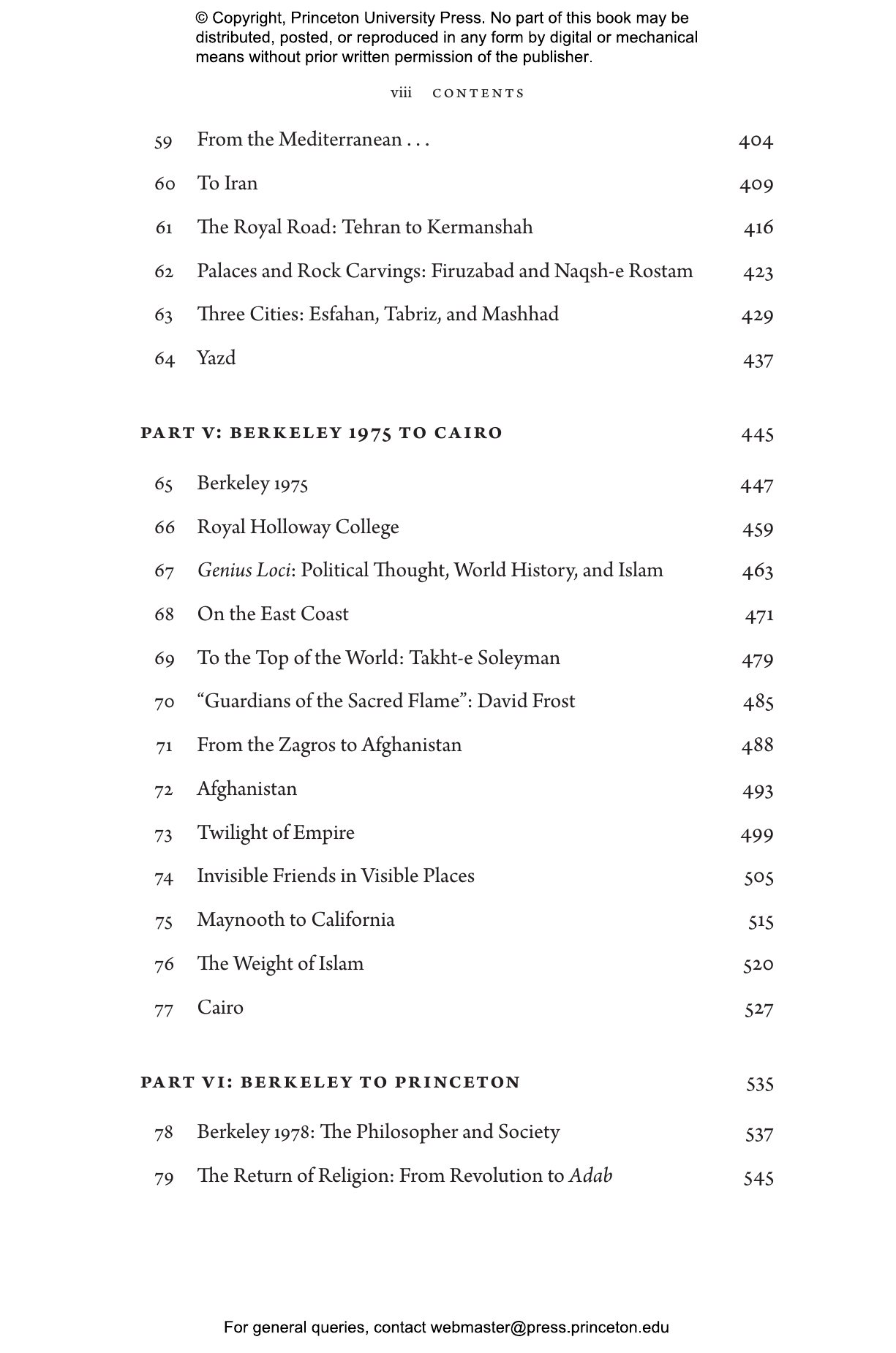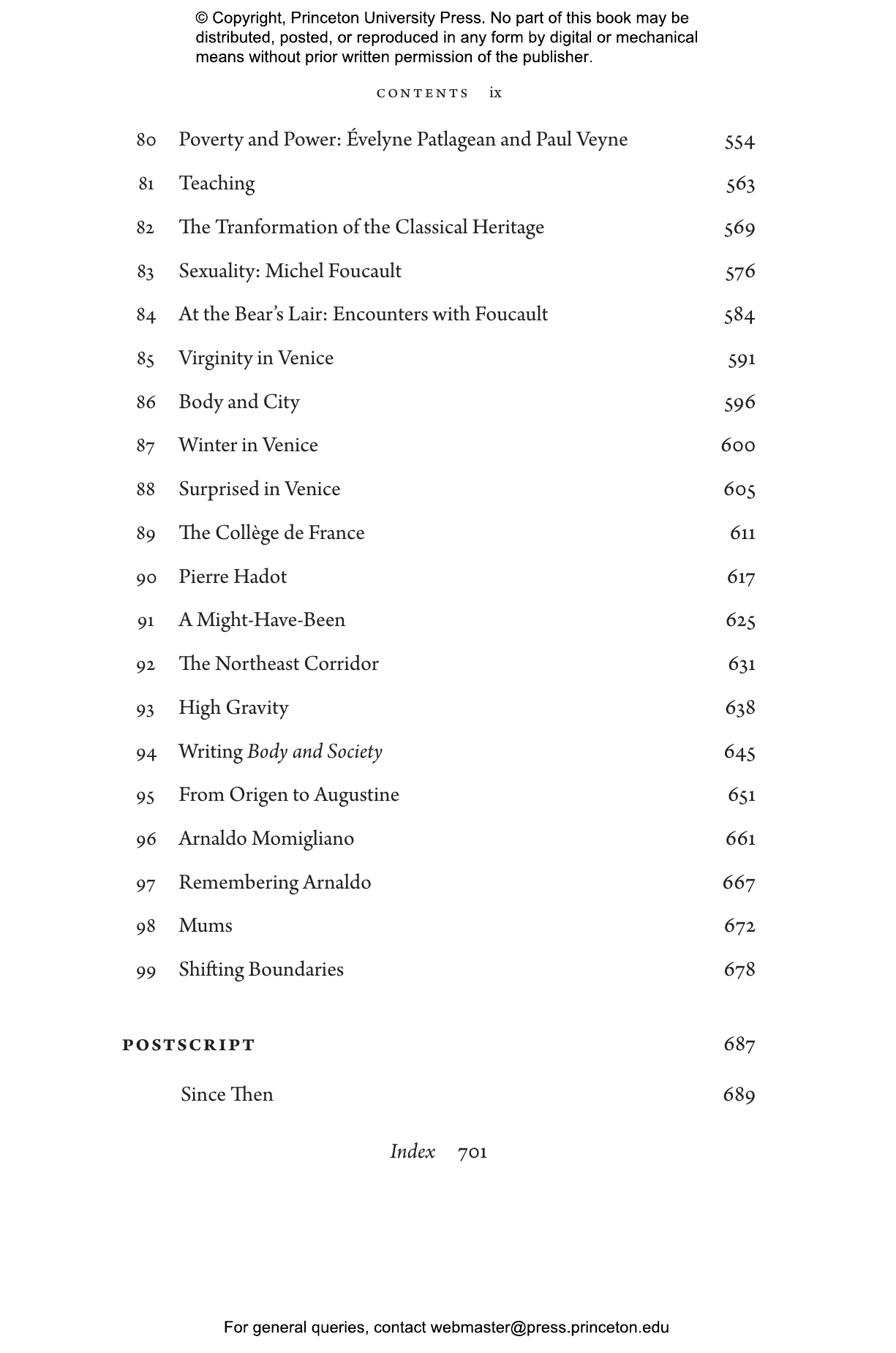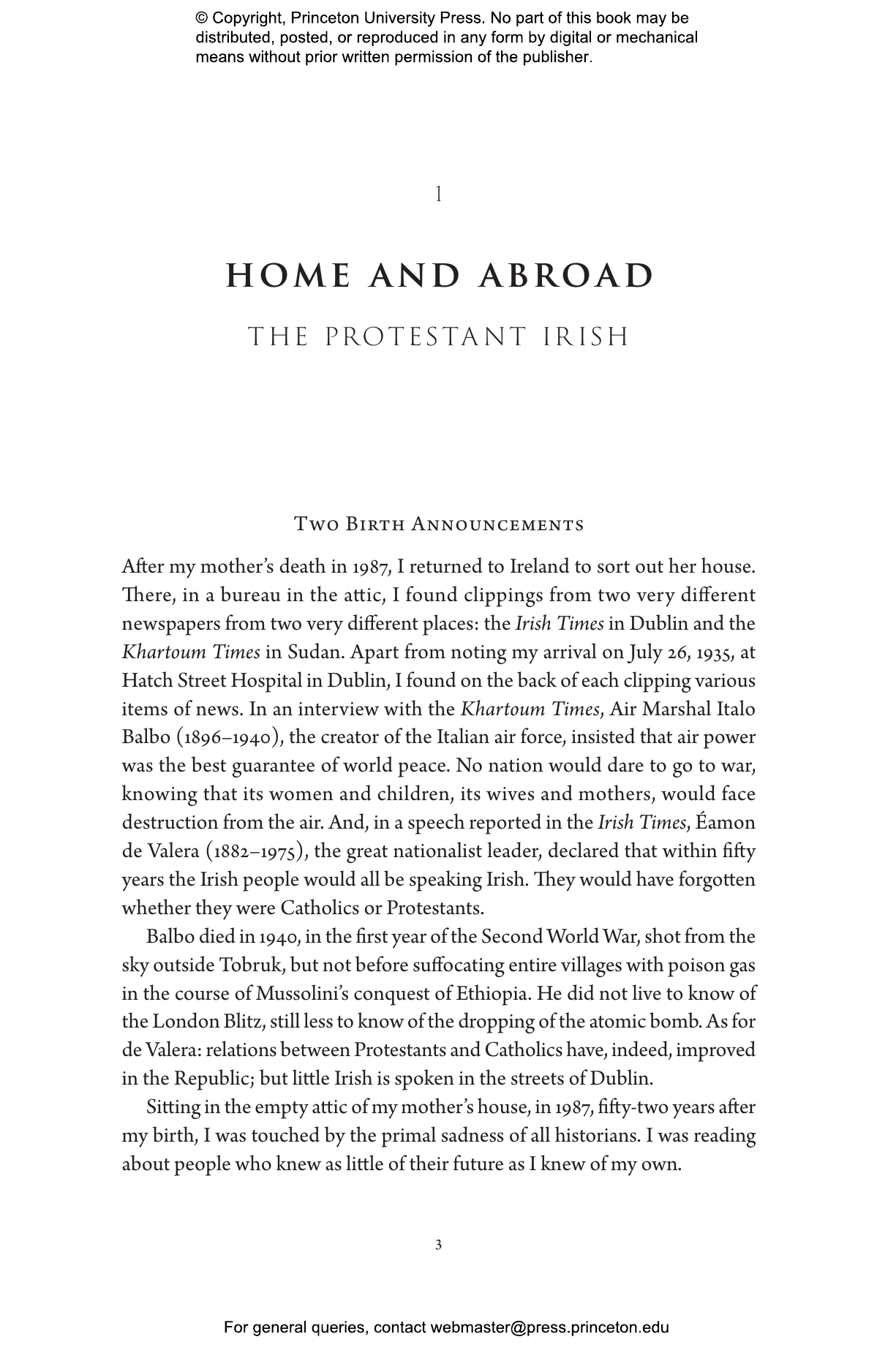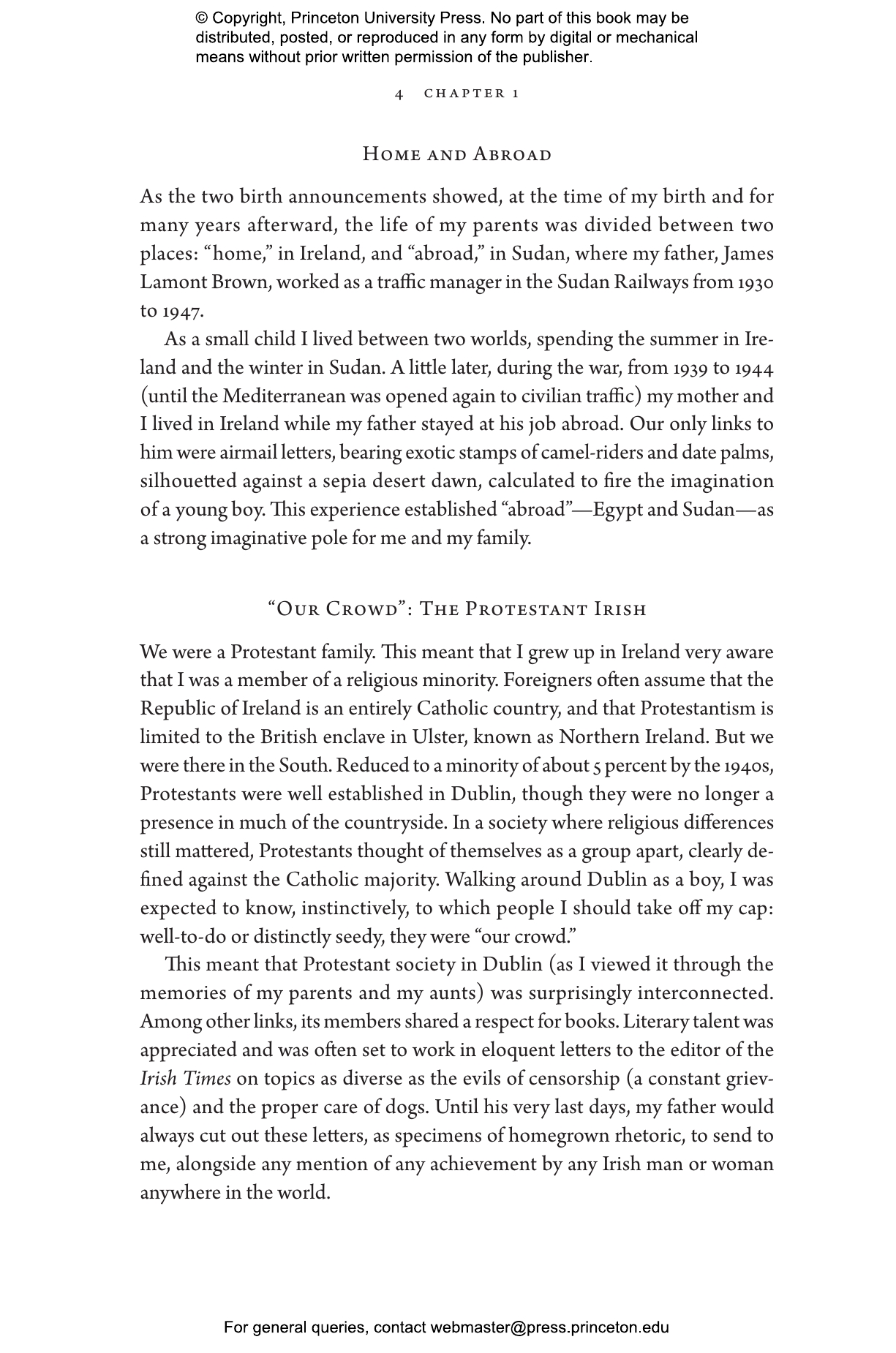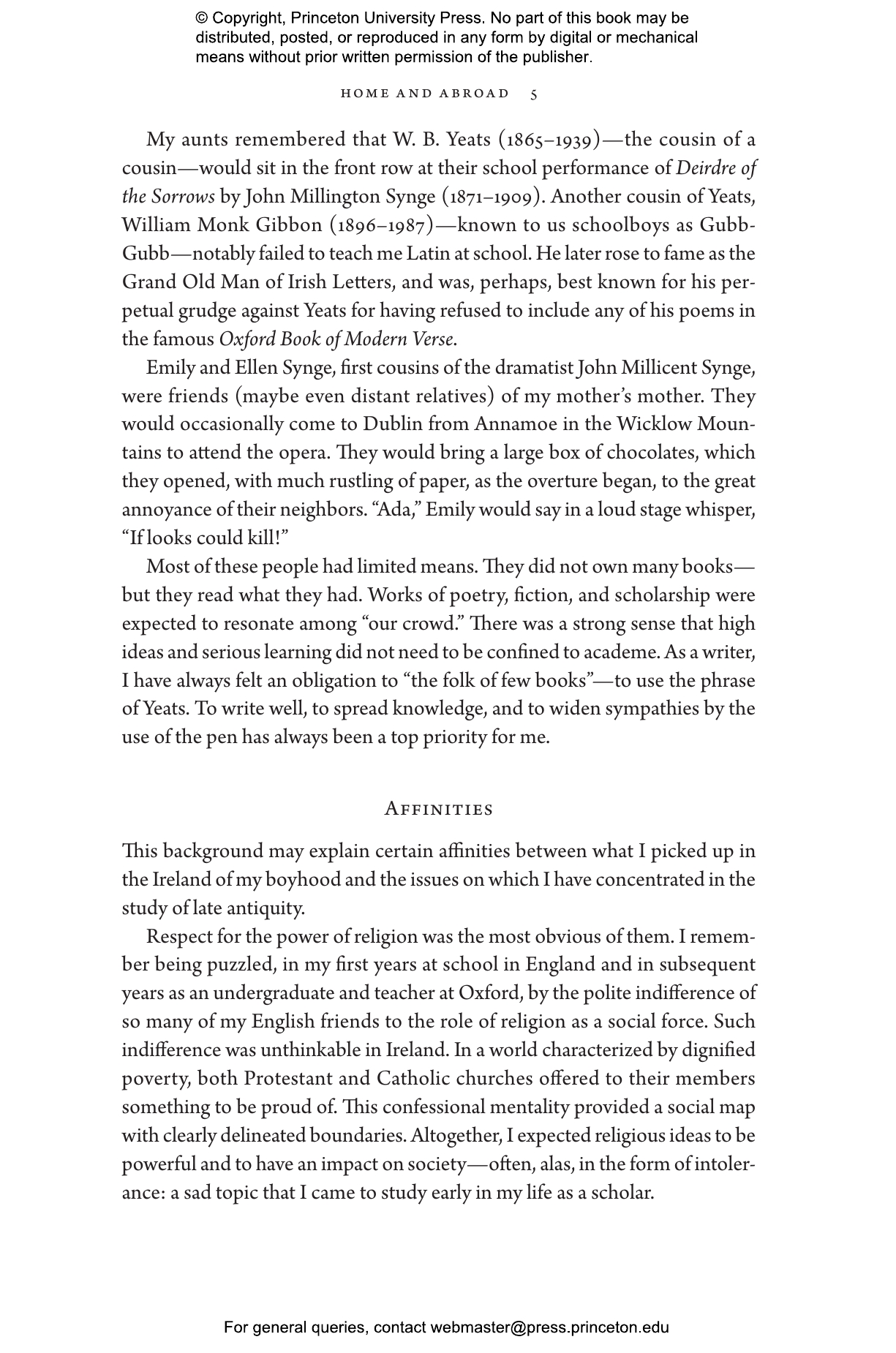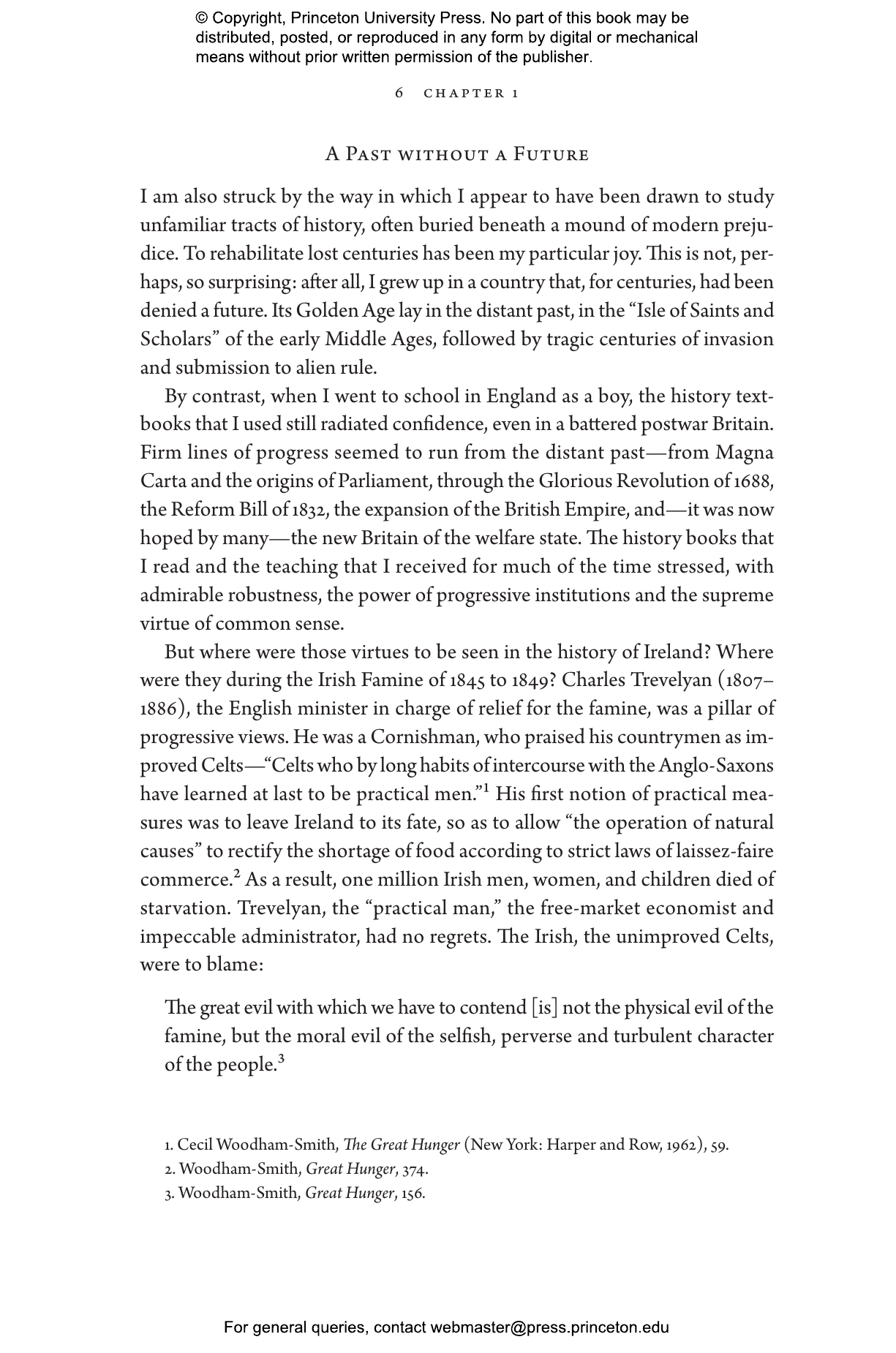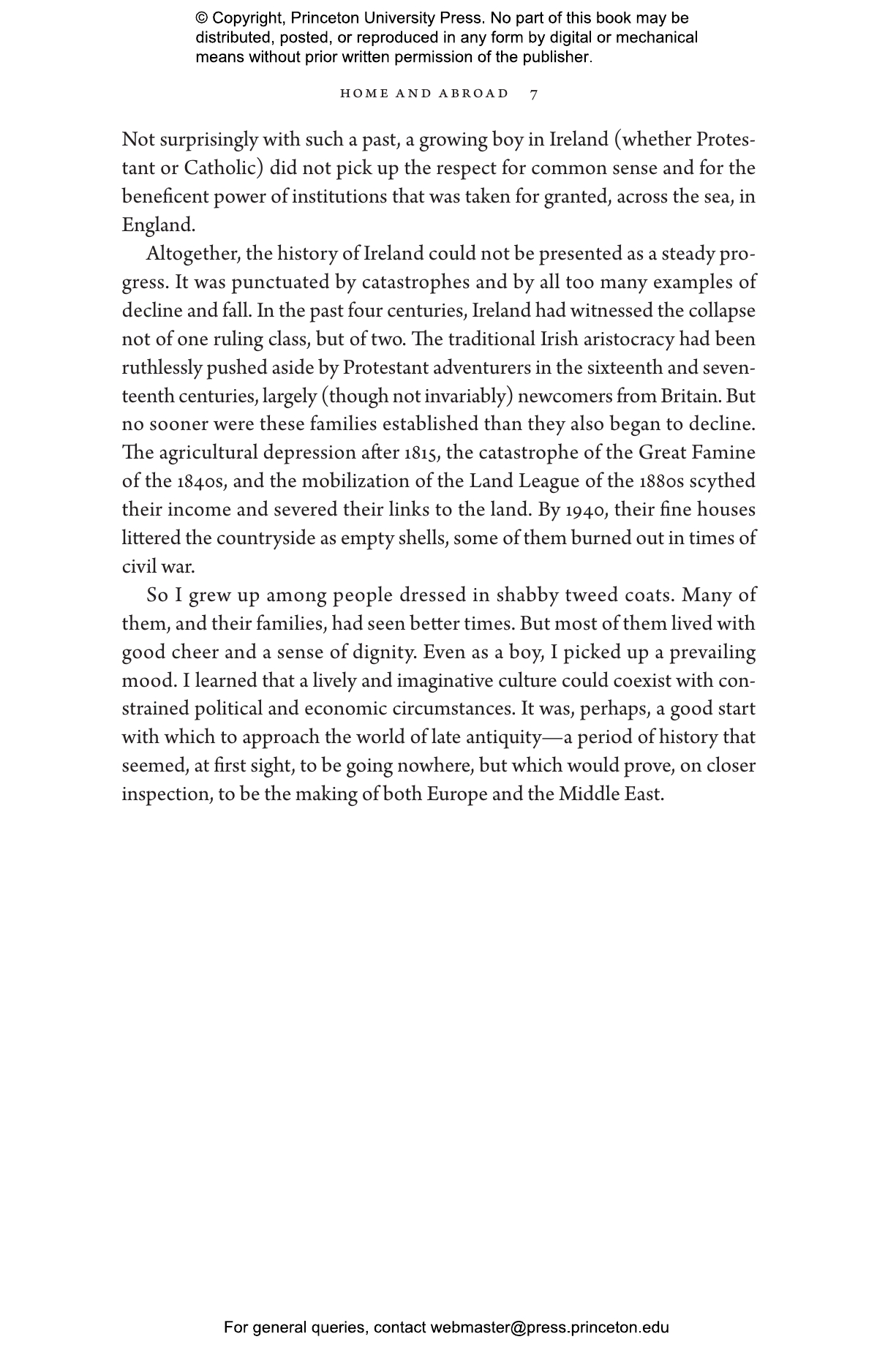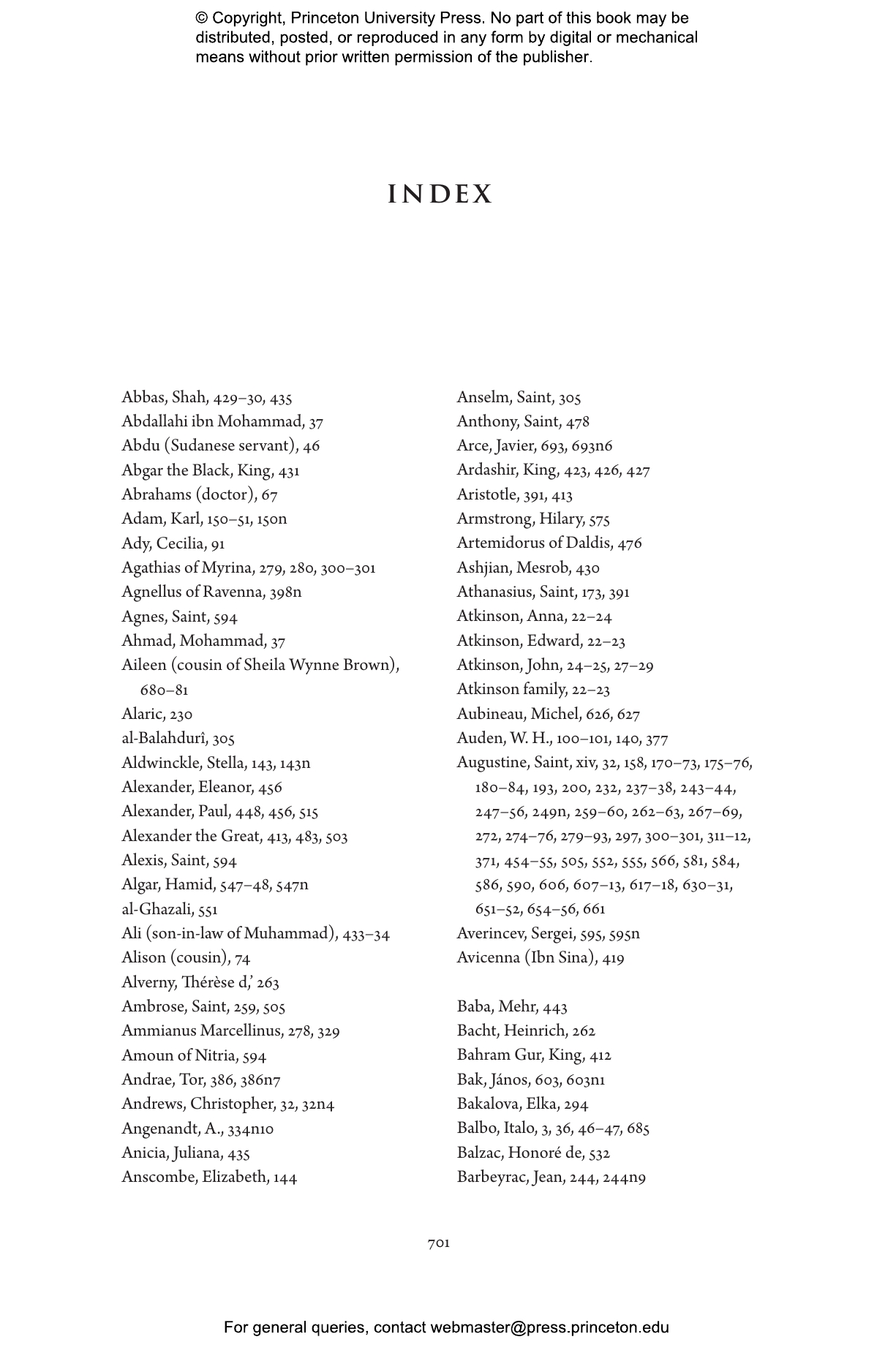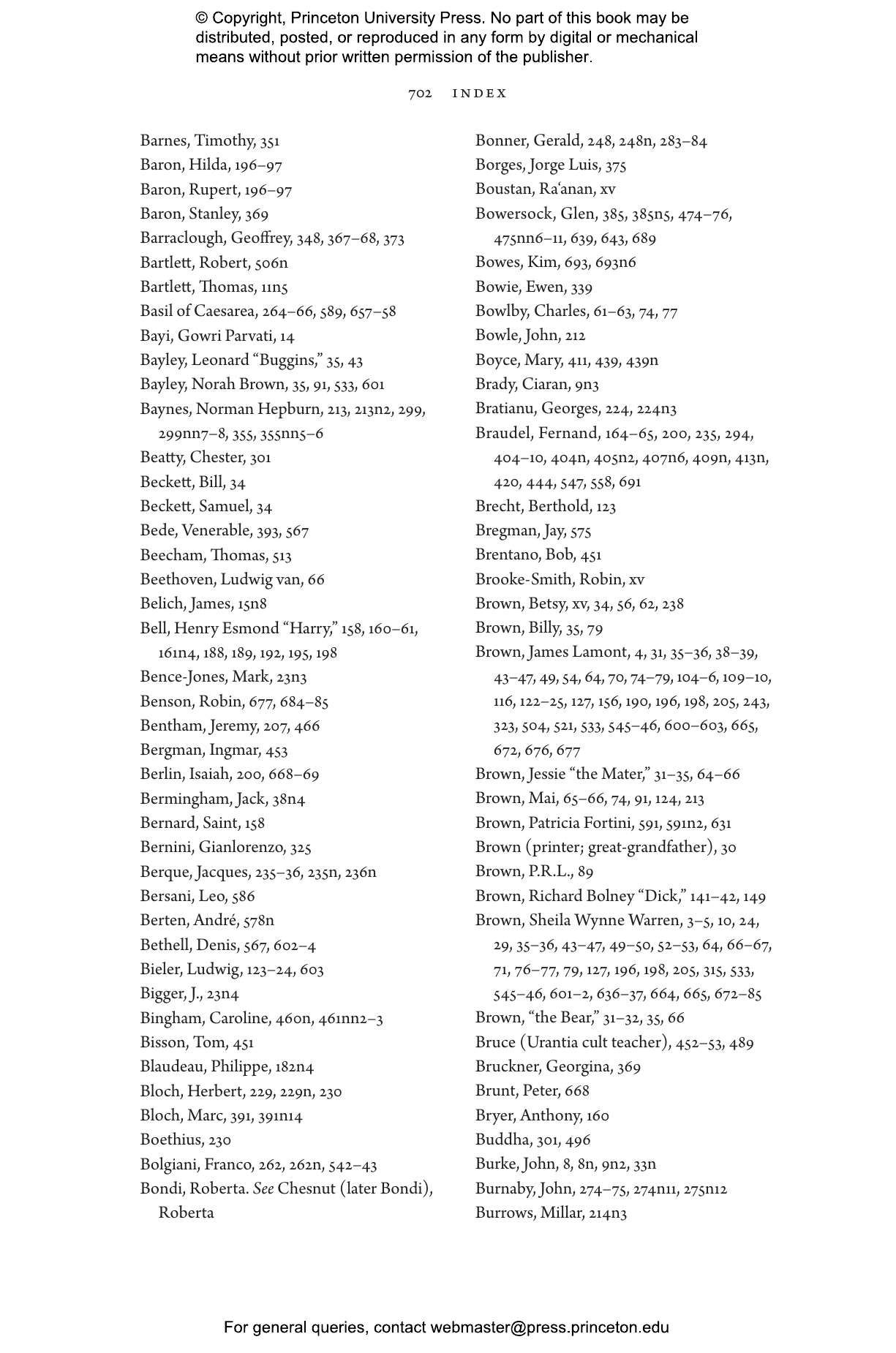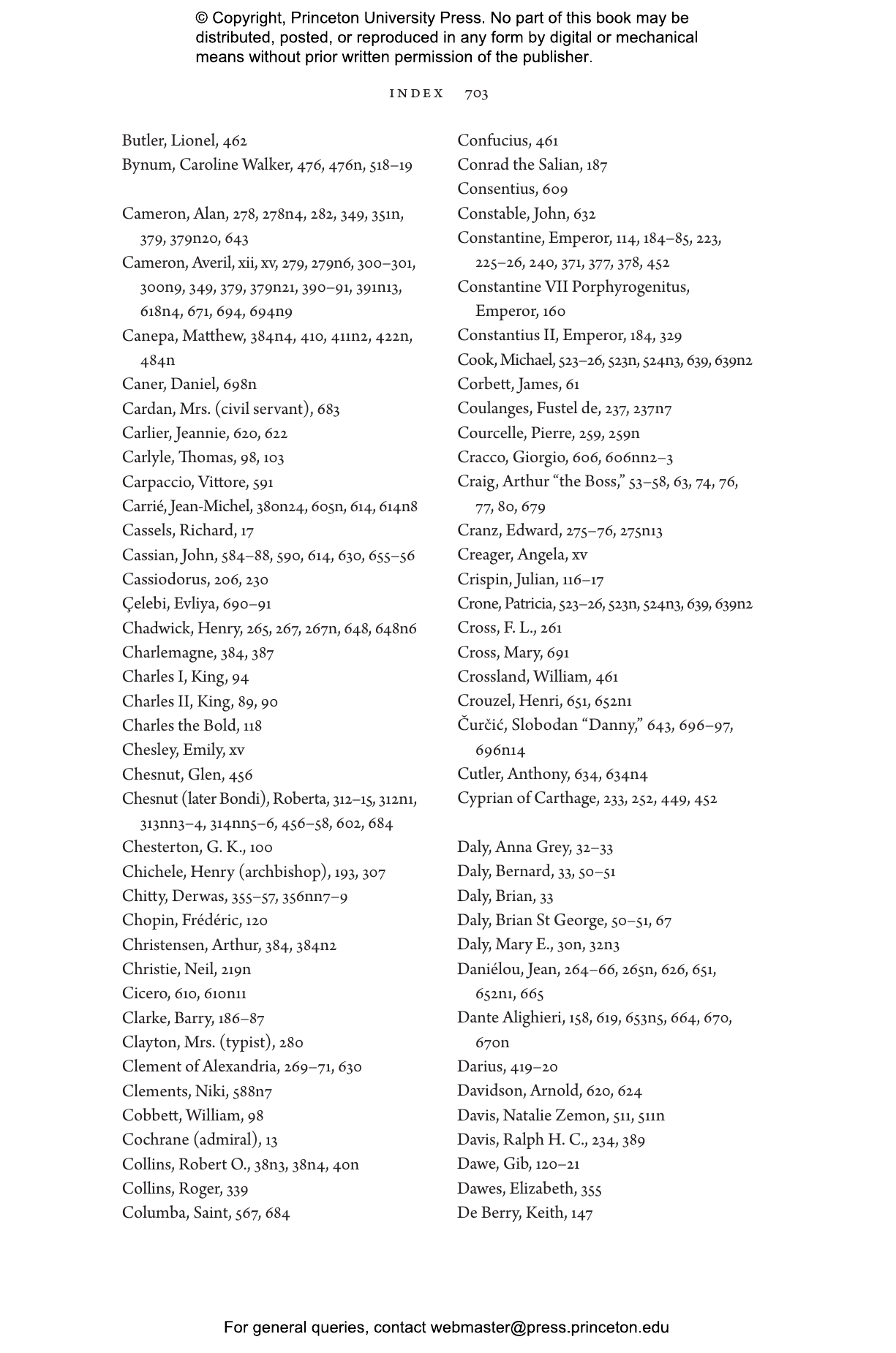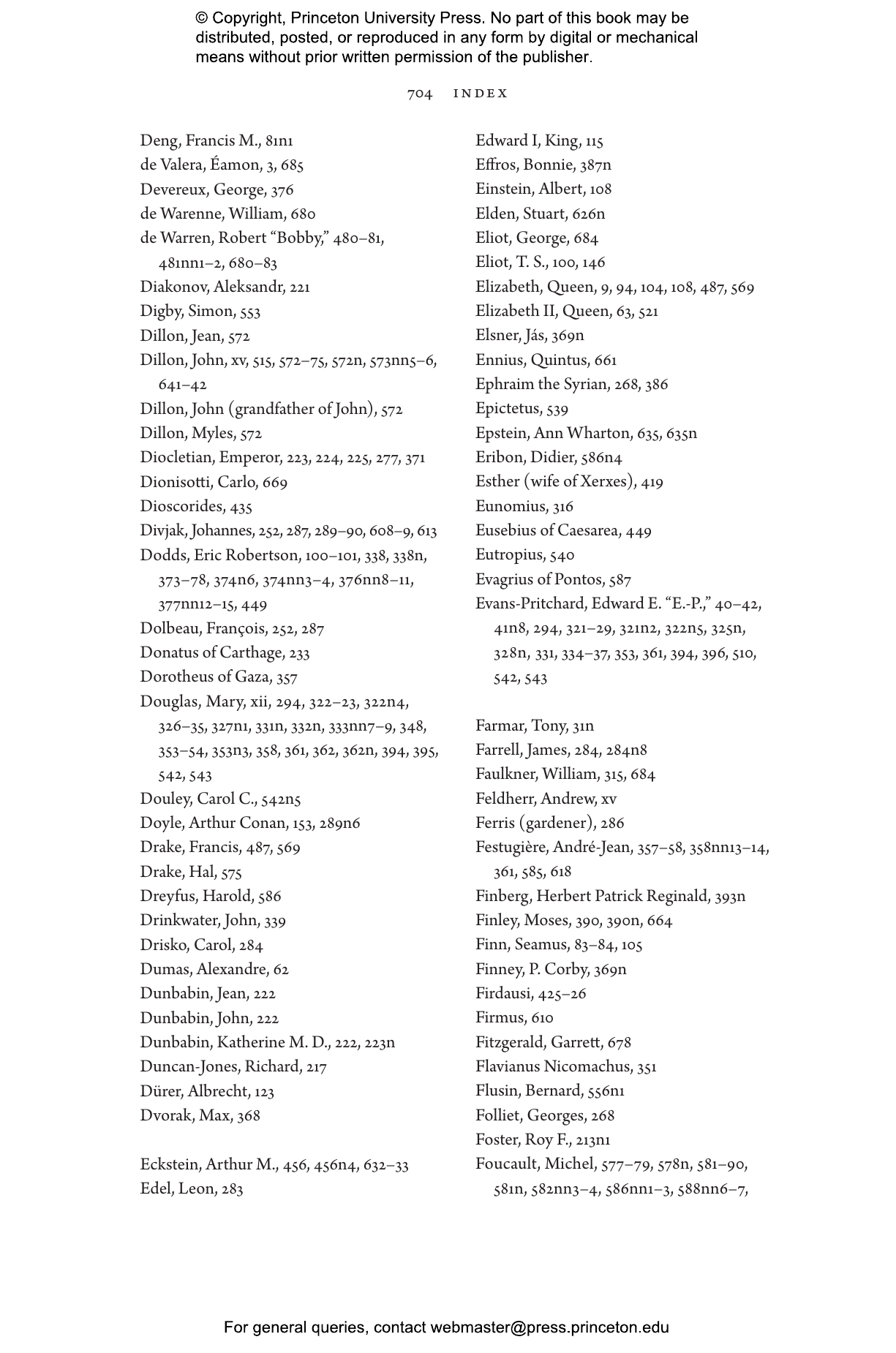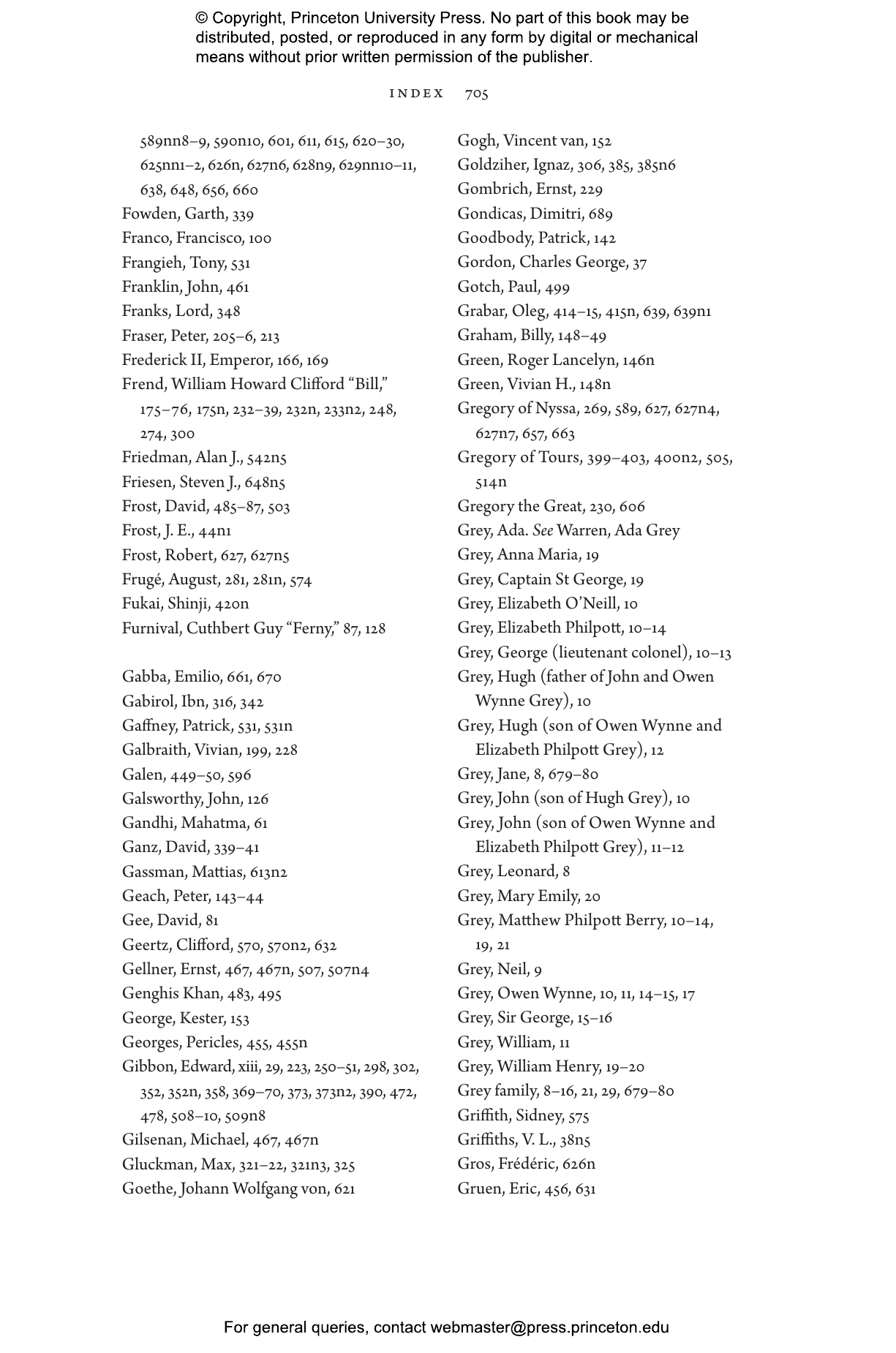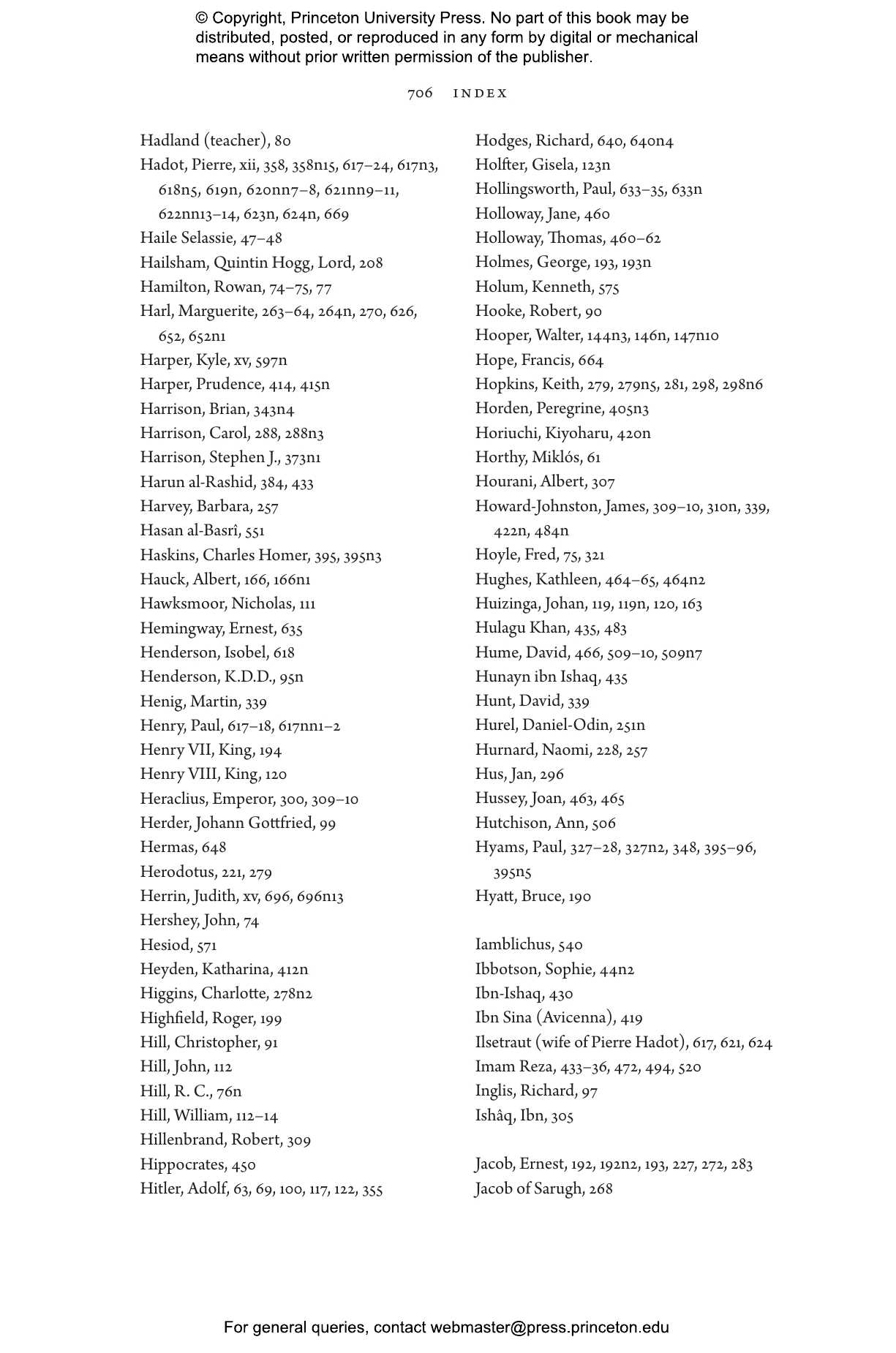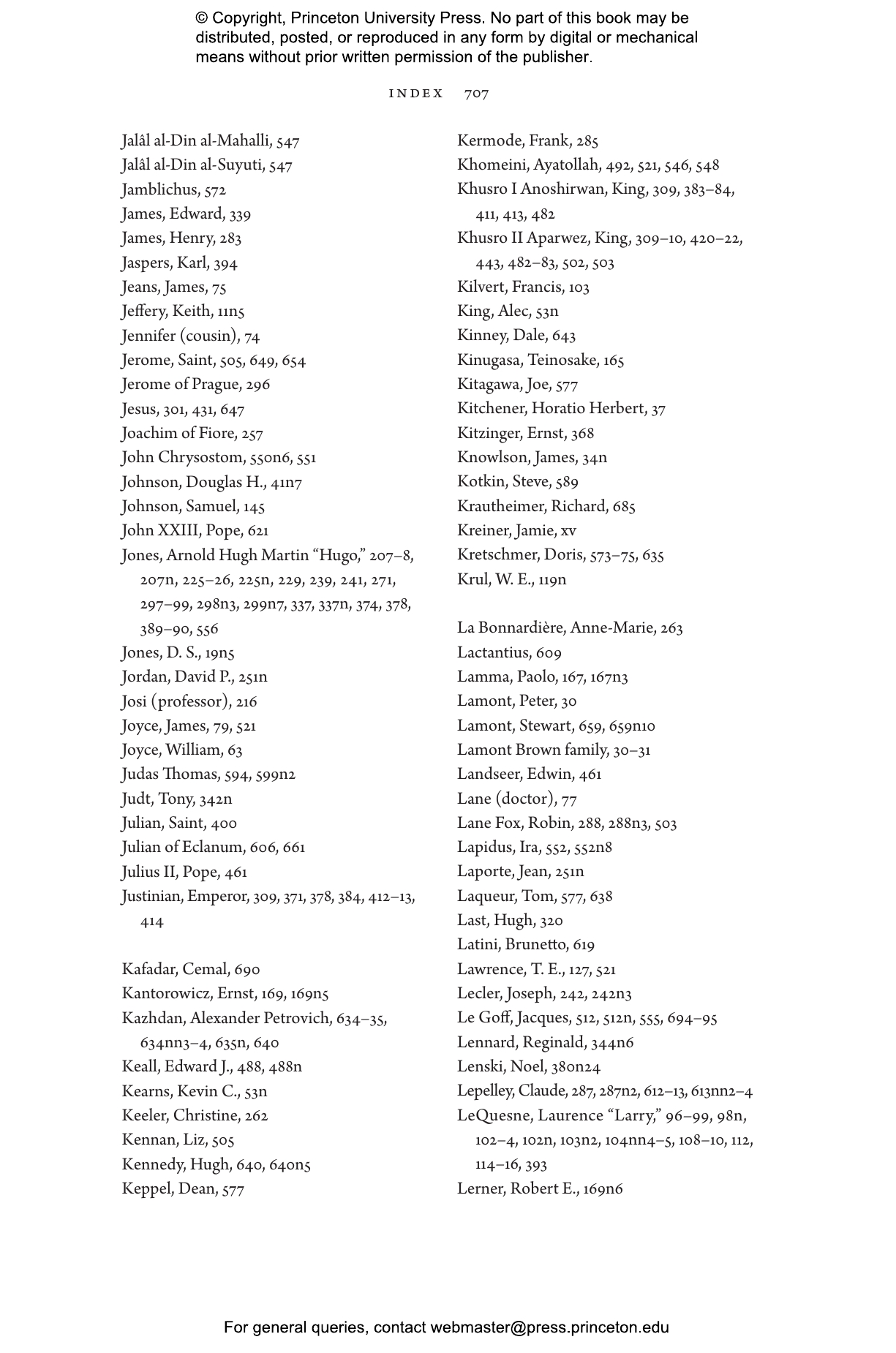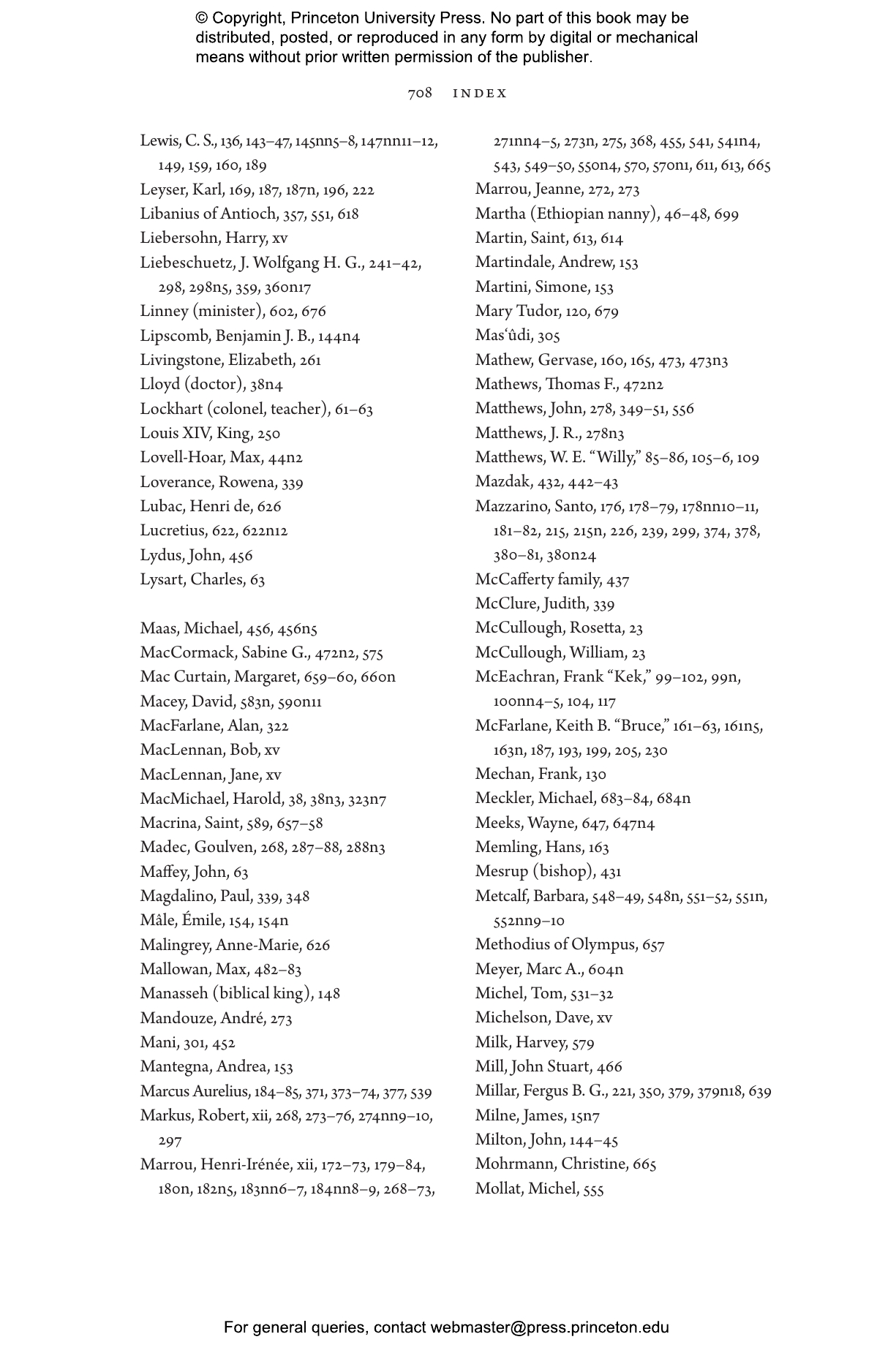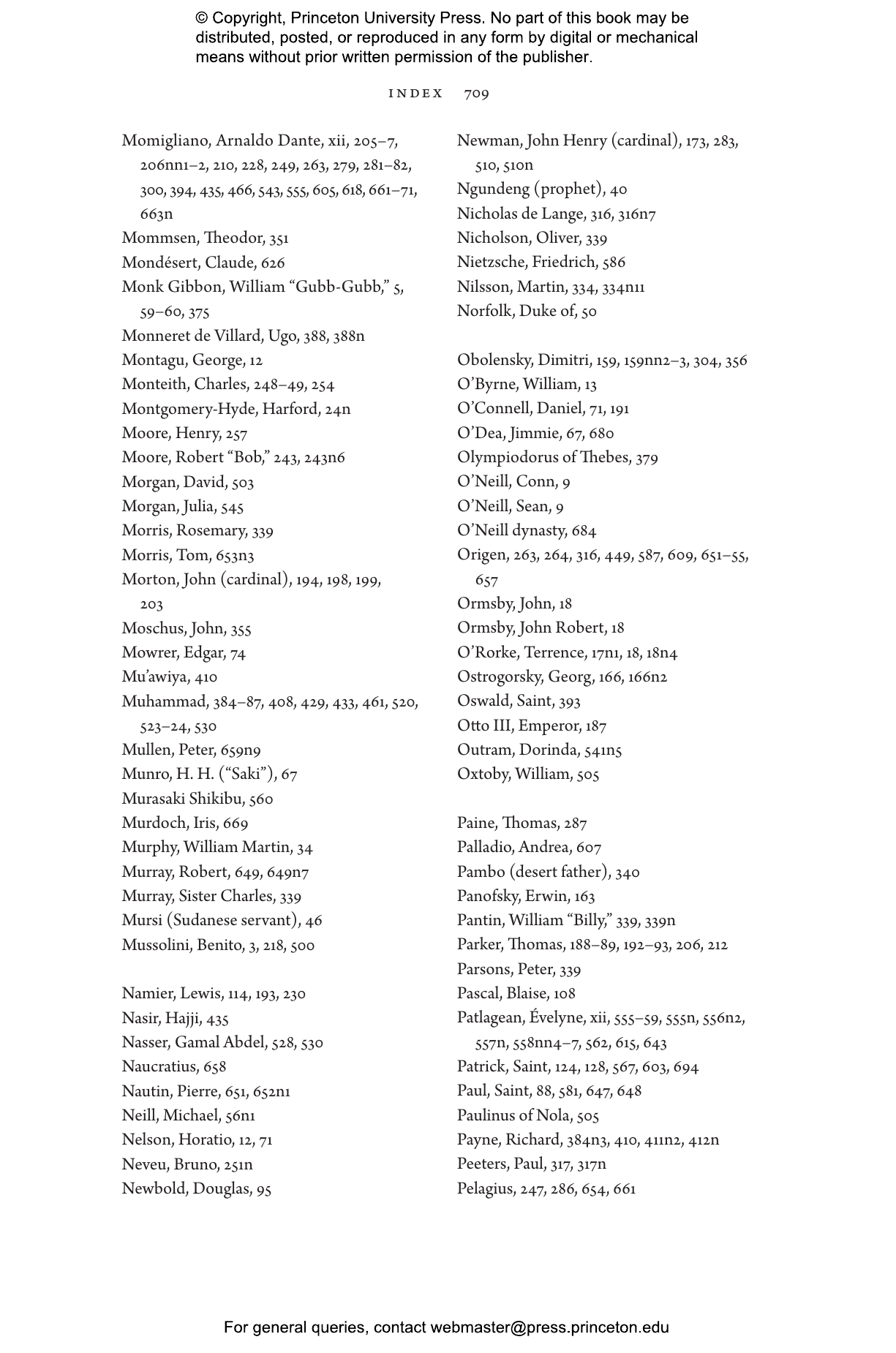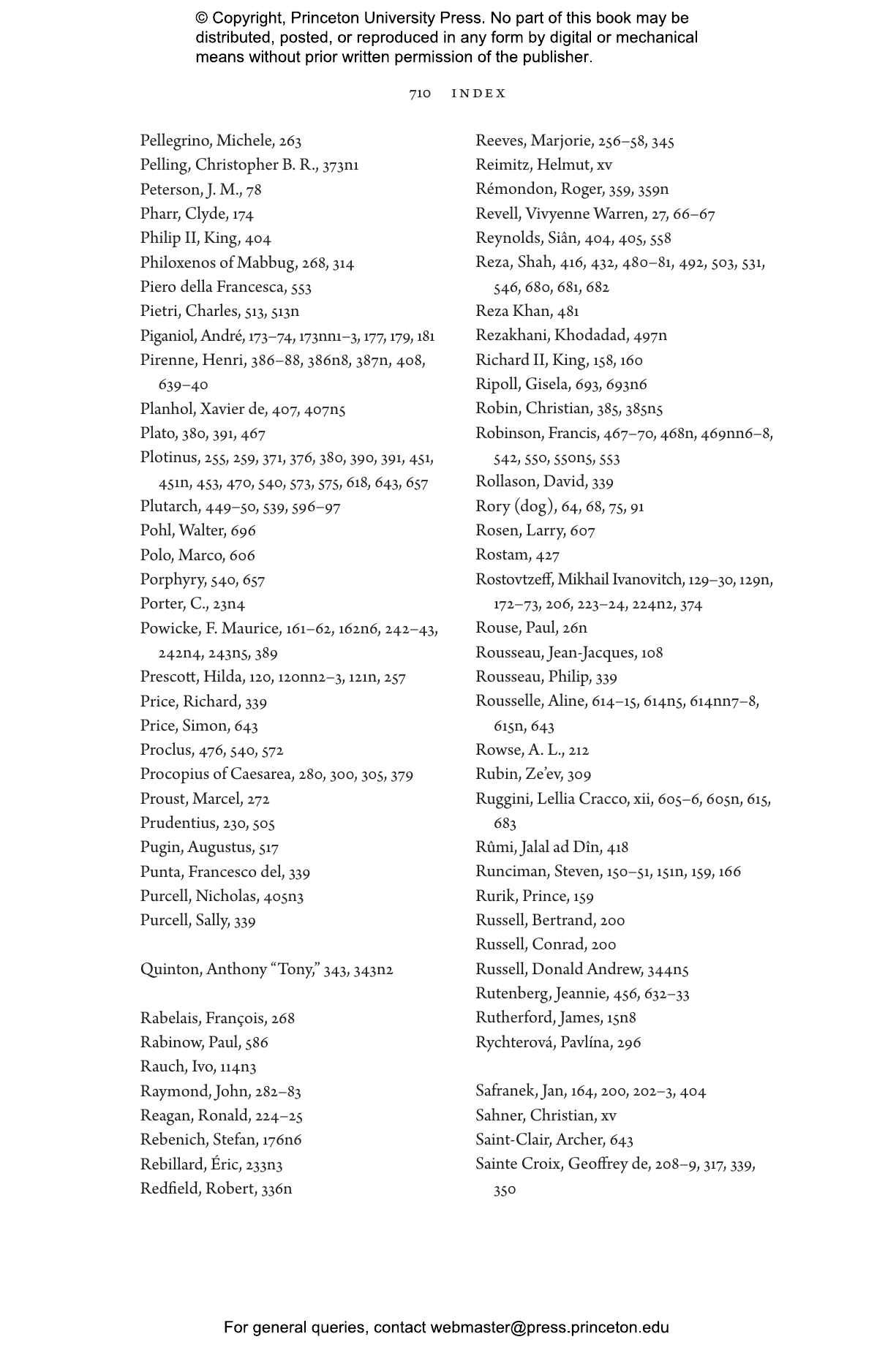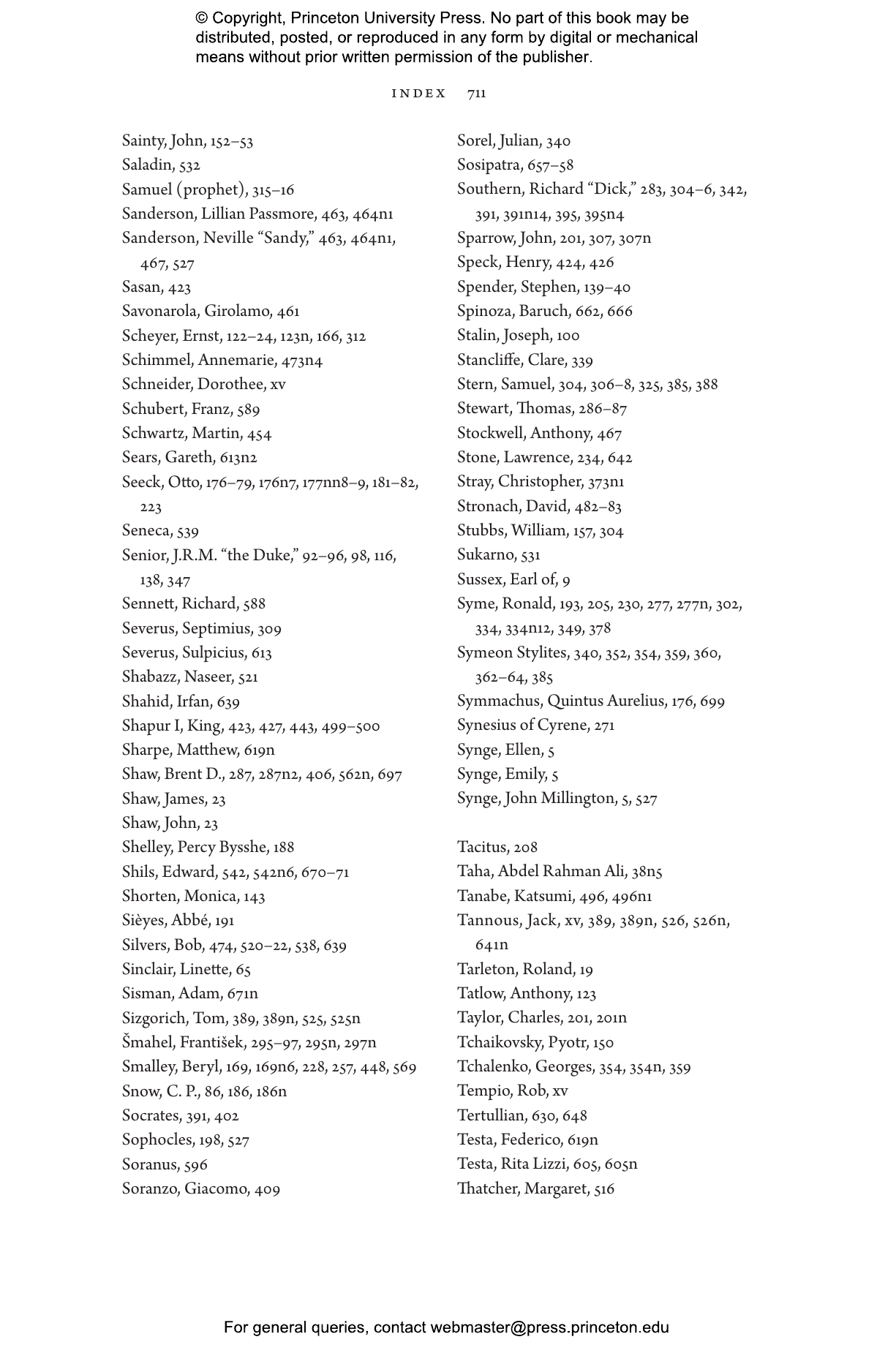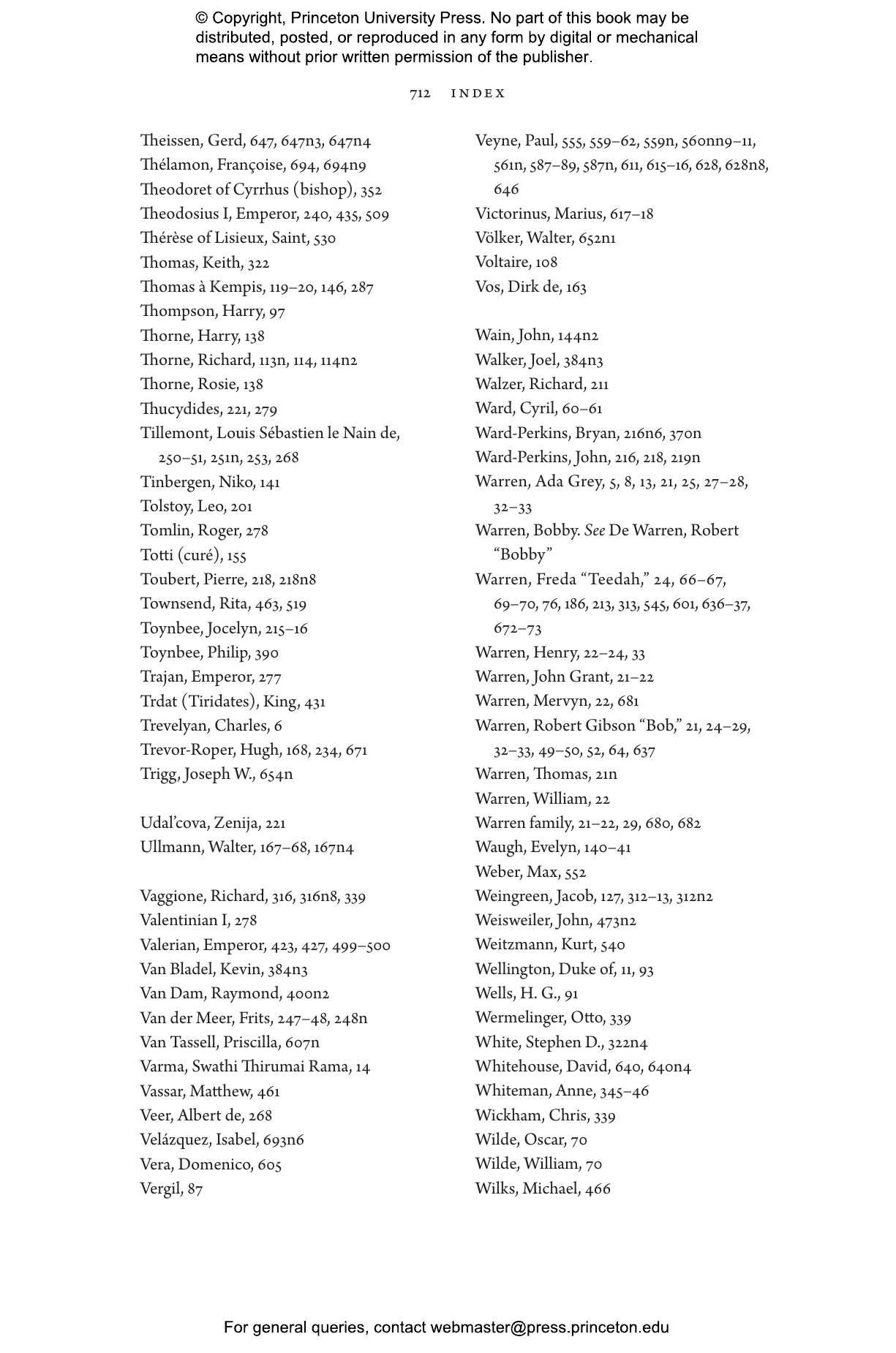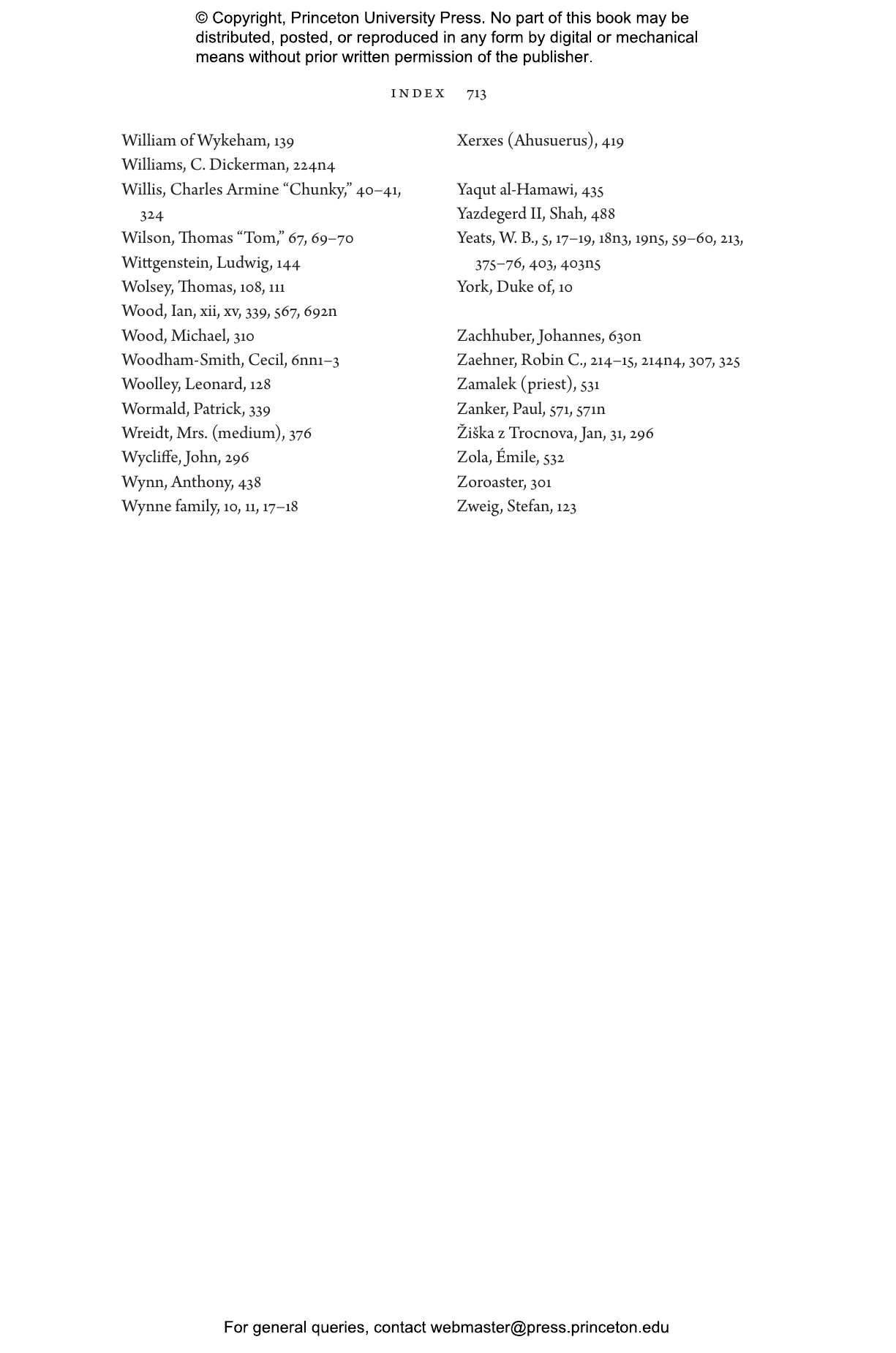The end of the ancient world was long regarded by historians as a time of decadence, decline, and fall. In his career-long engagement with this era, the widely acclaimed and pathbreaking historian Peter Brown has shown, however, that the “neglected half-millennium” now known as late antiquity was in fact crucial to the development of modern Europe and the Middle East. In Journeys of the Mind, Brown recounts his life and work, describing his efforts to recapture the spirit of an age. As he and other scholars opened up the history of the classical world in its last centuries to the wider world of Eurasia and northern Africa, they discovered previously overlooked areas of religious and cultural creativity as well as foundational institution-building. A respect for diversity and outreach to the non-European world, relatively recent concerns in other fields, have been a matter of course for decades among the leading scholars of late antiquity.
Documenting both his own intellectual development and the emergence of a new and influential field of study, Brown describes his childhood and education in Ireland, his university and academic training in England, and his extensive travels, particularly in the eastern Mediterranean and the Middle East. He discusses fruitful interactions with the work of scholars and colleagues that include the British anthropologist Mary Douglas and the French theorist Michel Foucault, and offers fascinating snapshots of such far-flung places as colonial Sudan, midcentury Oxford, and prerevolutionary Iran. With Journeys of the Mind, Brown offers an essential account of the “grand endeavor” to reimagine a decisive historical moment.
Awards and Recognition
- A Times Literary Supplement Book of the Year
- A History Today Book of the Year
- A Seminary Co-Op Notable Book of the Year
"[Brown] delivers an insightful and detailed chronicle of his life and academic career. . . . A rewarding combination of the personal and the scholarly, this is a valuable resource for students of the ancient world and the early Middle Ages."—Publishers Weekly
"This meticulous and lively account of [Brown’s] intellectual development lovingly acknowledges all the scholars—from his school days onward—whose work helped shape his own. . . . This book offers no less than a template for how to live, in an uncertain world, while surrounded by death and the unraveling of all we know: that is, in generous recognition of our teachers, with boundless curiosity, and buoyed by the delight of lifelong scholarship."—Claire Messud, Harper’s
"No historian has evoked more vividly the strange waltz between a transcendent faith and earthly powers in the centuries from Constantine to Muhammad (a period the book’s author named ’late antiquity’) than Peter Brown. Journeys of the Mind: A Life in History is a gripping new memoir about how he came to do it. . . . A sustained and moving meditation on how historians of any faith cope with the strangeness of its past."—Michael Ledger-Lomas, Los Angeles Review of Books
"An enthralling account of an eminent scholar at work. . . . Journeys of the Mind may well be the most romantic book of the year."—Michael Dirda, Washington Post
"‘Journeys of the Mind’ is a scintillating intellectual autobiography and an evocative traversal of lost worlds."—Dominic Green, Wall Street Journal
"An extraordinary book, recounting the intellectual development of an extraordinary scholar."—Peter Sarris, Engelsberg Ideas
"Enthralling."—Salopian Magazine
"A fascinating map of intellectual debts, of unexpected twists and turns . . . and of academic friendships across most of the globe. . . .[A] brilliant book."—Mary Beard, Times Literary Supplement
"The veritable crash course in twentieth-century intellectual history that [Journeys of the Mind] provides will capture the attention of persons with no particular knowledge of or interest in late antique studies as such. . . . And this, I think, is the book’s greatest contribution—that it is also an invitation. To follow the journeys of Peter Brown’s mind over the course of these seven hundred pages is necessarily to begin making journeys of our own."—John Ladouceur, The Lamp
"Peter Brown’s Journeys of the Mind is really two books in one: the autobiography of a distinguished historian, and a guided tour of the development of his intellectual interests and their application during his long career. . . . A fascinating safari through territory that is often unfamiliar but always interesting."—Lawrence N. Crumb, The Living Church
"An outstanding account, drawing on an exhaustive personal archive and aided by a formidable memory. . . .Written in pellucid prose, always gracious, unpretentious and unaffected, it is a rich feast to relish slowly."—Dublin Review of Books
"Journeys of the Mind has elucidated a lifetime of thought. It reflects how much Brown has enriched scholarship for the past six decades in ways which will undoubtedly stimulate new directions for research on this ‘world of late antiquity’ for many more decades to come."—Rosamond McKitterick, Zeitschrift für Antikes Christentum
"Peter Brown, like no other, has taught historians to view religion as a powerful force in history (past and present) and has taught theologians to understand every religious idea and doctrine as embedded – not to say: incarnated – within its specific historical and social context. This book’s gift to its readers is to offer this double insight and challenge once again, this time not in relation to distant times and people, but to the scholar’s own life and thought in history. Journeys of the Mind reveals how religion can work as a catalyst for historical imagination. But reading this book can also stimulate reflection on how history can become a catalyst for theological work. For history without religious imagination is empty, and theology without historical imagination is blind, as Kant might have said."—Katharina Heyden, Zeitschrift für Antikes Christentum
"Brown’s autobiographical reflections now offer us a clearer and indeed much wider-ranging view on [religion]"—Claudia Rapp, Zeitschrift für Antikes Christentum
"The most exciting book that I have read this century is Journeys of the Mind (Princeton), an intellectual memoir by the historian of late antiquity Peter Brown. Immaculately written, radiant with wisdom, generous, grateful and gladdening, it matches The Education of Henry Adams without the haughty wounded misanthropy."—Richard Davenport-Hines, Times Literary Supplement
"This wry scholarly autobiography excels in its pen portraits of scholars who have influenced Brown, from Mary Douglas to Michel Foucault."—Michael Ledger-Lomas, History Today
"Students of history and professional historians . . . should treasure this book for its portrait of an ideal historian’s mind. . . . Journeys of the Mind charts and epitomizes an exemplary career."—Amit Majmudar, New Criterion
"[An] entertaining memoir. . . . Journeys of the Mind is a portrait of a scholarly life in manual mode, but it is an excellent primer for twenty-first-century academics."—Josephine Quinn, New York Review of Books
"[An] engaging book. . . . It is a deep pleasure to accompany Brown on his journeys, intellectual and otherwise, and thereby to get a sense of the man, the world in which he grew up and thrived, and the field that he shaped."—Adele Reinhartz, Reading Religion
“In this masterpiece of a book, Peter Brown takes us on a journey from his native Ireland to Oxford, Berkeley, and Princeton as well as the Sudan, Iran, Turkey, and the Mediterranean. Along the way, we learn of the books and people who inspired him and contributed to the steady development of his influential ideas. It is written with deep humanity and generosity; one comes away richer, wiser, immensely grateful, and still wanting more.”—Averil Cameron, author of Byzantine Matters
“Journeys of the Mind is a rich and personal recounting of the birth of late antiquity, full of unexpected and fresh insights. It is also an engrossing tableau of now-vanished social worlds, from prewar Ireland to mid-twentieth-century Oxford to prerevolutionary Iran to 1970s Berkeley. Lyrical, profound, and deeply moving, the book puts Brown’s powers of empathy and imagination on full display and ranks as one of his finest accomplishments.”—Kyle Harper, author of Plagues upon the Earth: Disease and the Course of Human History
“Peter Brown has woven the conviviality and erudition of his company with the sweep and brilliance of his scholarship to create a unique, delightful journey through his life as the founding scholar of early Christendom.”—Judith Herrin, author of Ravenna: Capital of Empire, Crucible of Europe
“In Augustine of Hippo, Peter Brown unforgettably combined biographical sensitivity, fine-grained historical analysis, and lyrical writing to produce a life story of arresting beauty and depth. Now, drawing on these same gifts, he achieves this accomplishment yet again with his own life story, while tracing, as well, the twentieth century’s creation of the academic study of late antiquity. Told with grace, wit, and keen insight, Journeys of the Mind invites the reader to accompany this master storyteller as he relates his own thrilling intellectual autobiography. What variegated sojourns; what gifts of navigation; what wonderful journeys, indeed.”—Paula Fredriksen, author of When Christians Were Jews: The First Generation
“Journeys of the Mind is a profound meditation on what it means to be a historian, by one born between countries, religions, and classes. Peter Brown reminds us that to do history means to live in it, and to toggle backwards and forwards between our pasts, the past, and the ‘primal sadness’ of an unknowable future. This is not only an autobiographical account of a historian, or the shaping of a historical field, but a lyrical reminder of how history is born of families and friendships.”—Kimberley Bowes, University of Pennsylvania
“Peter Brown ranks among our greatest living historians and finest writers in the English language, and this book takes us on a trip across worlds and histories. Through his gimlet eye we walk the sectarian streets of his native Ireland, enjoy the gaudy nights of 1950s Oxford, navigate the buses of rural Iran and crowded Cairo, and experience the leafy sub-urbanity of Princeton. We accompany him to intense literary communions with early Christian monks in the deserts of Syria and to equally intense lunches with Michel Foucault in Paris. Along the way, we learn a great deal about both ancient and modern history. But the ultimate goal of Journeys of the Mind is even greater: to teach each of us in our own present what it means to think historically, through the example of a life that has done so.”—David Nirenberg, author of Communities of Violence: Persecution of Minorities in the Middle Ages
